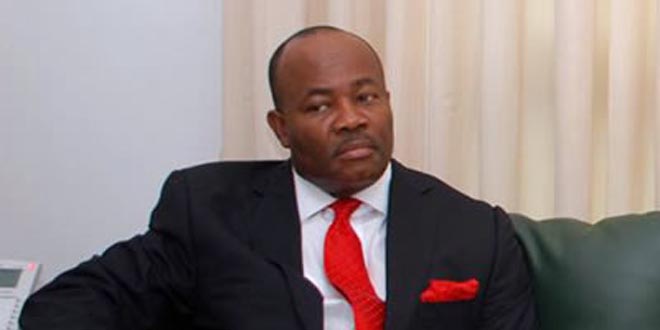By Elsie Udoh
If you are reading this post, it’s because you have a passion for starting in the real estate business, and we know that you are highly curious, possibly wondering if what you just read is true.
Join our WhatsApp ChannelYou probably read the headline twice, maybe three times, and well, you did not misread; neither is this some clickbait to get your attention. But then, if there’s one thing you should take home from this post, it’s that you can fulfill your lifelong dream of investing in real estate with no money!”
How is that even possible? Do not be overwhelmed with disbelief yet, because Prime Business Africa has carefully analysed some tested and trusted money-free ways to get started in the lucrative business of real estate, so keep your curiosity in check and don’t skip any part of this post to see how you can join the big players and earn from real estate.
5 Ways to Invest in Real Estate with No Money
Real estate is a lucrative way of purchasing property to generate income or appreciate in value through methods like buying rental properties or flipping homes, among others.
These properties need to be priced below market value and have a strong rental potential in a desirable area, taking into consideration factors such as location, property condition, market demand, and features that make them attractive to renters.
Oftentimes, investing in real estate involves a great deal of capital, but here are our 5 top-pick methods to get you started with no money:
1. Form Strategic Partnerships
A popular parlance goes thus, “If you want to go fast, go alone, but if you want to go far, go with somebody.” The same is true in the business of real estate. The simple logic to do this is to find somebody who has the resources to invest in real estate if you don’t. Now, when that person agrees to invest, you then offer your skills, such as project management, property management, or real estate expertise. This makes it a tit-for-tat arrangement: you leverage someone else’s capital while you offer your time and skills. But to do this, you must be skilled, so why not take the time to acquire the skills needed to thrive in real estate while you find an investor to partner with?
This method is effective because many seasoned investors may have the cash but lack the time or willingness to handle the day-to-day operations of property investments. So partnering with them results in a win-win situation for both of you and allows you to get involved without a financial stake.
In doing this, however, it is essential to partner with trustworthy investors and be somebody of integrity yourself. Sarah, a real estate mogul, emphasises the importance of building strong relationships based on trust when seeking partnerships. “Trust and transparency are key in real estate partnerships. Make sure you clearly outline responsibilities and expectations upfront to avoid conflicts down the line,” she advised. This is essential for long-term success when investing without your own capital.
2. Wholesaling
Wholesaling involves finding properties that are undervalued or distressed and securing them under a contract. Distressed properties are homes or buildings that are sold at a lower price because the owner is facing financial difficulties, legal issues, or the property is in poor condition. While undervalued properties are homes that are priced below their actual market value, not because of any major issues but due to factors like motivated sellers, poor marketing, or temporary market conditions.
When you find these properties and secure them in a contract, you assign the contract to another buyer (usually an investor) for a fee. Now, the beauty of wholesaling is that you don’t need to buy the property outright—just get it under contract and earn your profit by flipping the contract to someone else. In simple terms, you are finding motivated sellers (foreclosures, distressed properties, etc.), negotiating a deal, and then selling the rights to the contract to another buyer. So without purchasing any property or investing significant upfront capital, you can get started in real estate.
To do this, however, you need strong negotiation skills, an understanding of the market, and a solid network of buyers. What makes wholesaling even more attractive is that it can be done quickly. If you’re good at finding deals, you could make significant profits without putting any of your own money into the deal.
3. Real Estate Bird Dogging
Let’s illustrate this with a simple example: You go to the popular Alaba market to get wares. Since there are many shops available to get them, you stand at a midpoint confused about whom to approach, and just then, a young boy approaches you smiling and gives you convincing reasons why you should patronise his oga’s (boss) stall and your confusion ceases that instant. The young boy, on the other hand, proceeds to approach prospective customers. What would you call that young boy in the scenario? A middle agent, of course. Now he doesn’t own the shop, nor is he the one making the purchase, but he is speaking to customers, giving them good deals and most likely to get a cut from each buyer’s purchase.
Similarly, with bird dogging, you are finding profitable deals for investors. Rather than find invaluable or distressed properties like wholesaling, you scout and identify potential investment properties for other real estate investors, and in return, they pay you a finder’s fee for each deal that they close.
3. Seller Financing (Owner Financing)
With seller financing, the property owner acts as the lender. Instead of borrowing from a bank, you agree to make payments to the seller over time. Here the seller finances the sale, but you negotiate directly with the seller on terms like down payment, interest rates, and repayment schedules. After doing this, you make monthly payments based on what has been agreed on, directly to the seller. Some sellers may accept minimal or no money down if they are eager to offload the property.
This type of arrangement is particularly useful when the seller is eager to close quickly or the property has been sitting on the market for some time. It can also work well if you do not have enough funds to invest or need more time to save for a large down payment.
4. Lease Options (Rent-to-Own)
This method allows you to lease a property now and buy it later. What you do here is agree to rent a property for a set period (usually 1-3 years) with the option to purchase the property at the end of the lease. Part of your rent may go toward the purchase price, allowing you to save for a down payment while living in the property. This method is ideal if you’re looking to invest but need more time to secure financing or save for a down payment since you don’t need a large upfront investment, and it also allows you to test the property and market before committing to ownership.
5. Private Money Lenders and Crowdfunding
Private money lenders are individuals or companies willing to lend money for real estate investments, usually with terms that are more flexible than those of traditional banks. Private lenders are often more interested in the deal itself than in your credit score, making it easier for you to secure funding. Crowdfunding platforms for real estate, like Fundrise or RealtyMogul, allow you to pool money with other investors to fund real estate projects. This strategy requires little money upfront and can generate returns without owning a property directly.
FAQs on Real Estate Investing with No Money
Can I really invest in real estate with no money?
Yes, it’s possible to invest in real estate with little or no money. Methods like partnerships, wholesaling, and seller financing allow you to leverage other people’s resources while you gain experience and build equity.
Is wholesaling real estate risky?
Wholesaling can be a low-risk strategy, but it requires knowledge of the market and strong negotiation skills. The main risk is not finding a buyer for the contract, which could leave you out of pocket for any upfront fees paid to the seller.
How do I find a partner to invest with?
Start by networking at real estate investment groups, online forums, or even within your local community. Look for seasoned investors who have the capital but need someone to handle day-to-day management.
What is the best strategy for a beginner?
Wholesaling is a great strategy for beginners as it allows you to make quick profits with minimal risk.
What should I look out for in seller financing?
Ensure the terms are clear, especially regarding the interest rate, repayment schedule, and what happens in the event of default. It’s also advisable to have a lawyer review the contract before signing.
Conclusion
There you have it—the 5 effective ways that make it possible to get started in real estate with little to no money. The key to success, however, is creativity, perseverance, and the willingness to learn. Remember that when there’s a will, there is a way, so explore these strategies and find the best one that matches your needs to find your path to enter the real estate market and build wealth over time.

















Follow Us